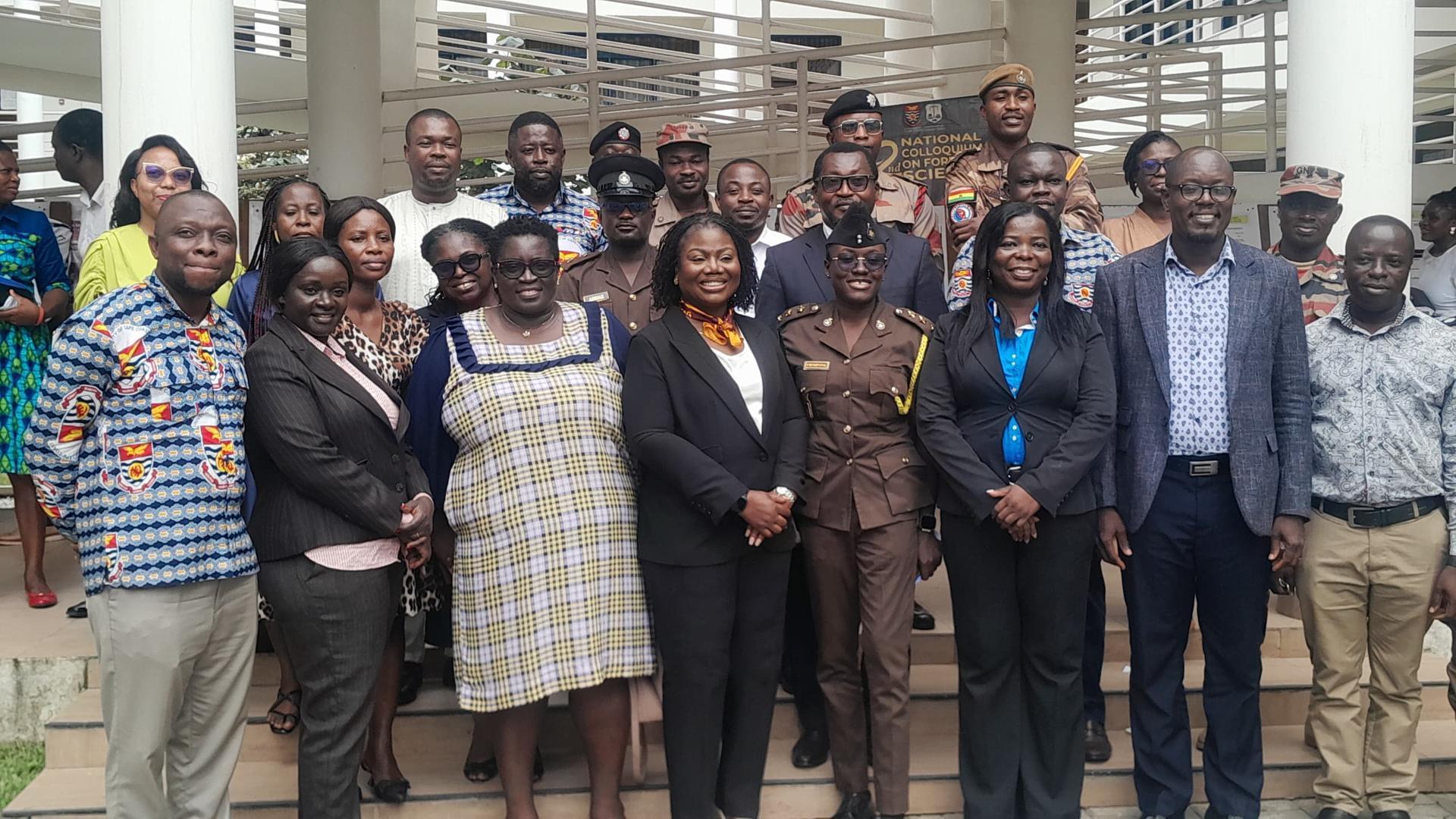Africa-Press – Ghana. COP Maame Yaa Tiwaa Addo-Danquah, the Technical Advisor to the Minister for the Interior, has called for heavy investment in forensic sciences to establish a more robust and reliable criminal justice system in Ghana.
She said forensics such as DNA, fingerprinting, and ballistics provided more accurate and incontrovertible evidence to convict real culprits as opposed to the system of hearsay, eyewitness accounts and confessions which usually resulted in wrongful convictions.
COP Tiwaa Addo-Danquah, a former Director General of the Criminal Investigations Department (CID), was speaking at the second National Colloquium on Forensic Sciences organised by the College of Agriculture and Natural Sciences (CANS) of the University of Cape Coast (UCC).
Held on the theme: “Forensic sciences for sustainable development: Interrogating the Use of Sciences in the Justice System,” the event aimed to promote dialogue among academia, practitioners and policymakers on the role of forensic science in achieving sustainable development.
The colloquium comes amid public concerns over Ghana’s capacity in forensics following the transportation of samples of the military helicopter crash victims abroad for forensic tests.
COP Addo-Danquah explained that flying the samples abroad was the best option under the circumstances because Ghana did not have the reagents required for the procedure and could not also import them due to time constraints.
In view of that, she underscored the need to go into the production of such reagents for future emergencies.
The seasoned investigator insisted that the State must constantly invest in new equipment, infrastructure, training as well as the production of reagents to beef up the country’s forensics capacity to fight crime effectively.
“That is how we can get justice for everybody. It is not about the truth. It is about you getting evidence to support it.
“If you rely on the truth alone and you get to the court, you will not have a very good case,” she said.
Sharing her experiences in her 30 years in law enforcement, she narrated how fingerprinting, DNA analysis, toxicology, ballistics and other forensic elements were used to unravel crimes and apprehend perpetrators.
She identified a huge gap in funding for forensics as well as other limitations and called for a concerted effort to improve upon the situation.
She highlighted the evolving and dynamic nature of science and made a strong case for the constant upgrade of forensic equipment to improve investigative outcomes.
COP Addo-Danquah also advocated for the establishment of more forensic labs across the country to decentralise investigations and called for more training in the area.
“The Ghana Police Service has a lab, and we need to ensure that there are new equipment and reagents available always to carry investigations,” she stressed.
“I’m looking at a situation where we have a Ghana where justice is prompt, fair and accurate,” she added.
She expressed disquiet over the various agencies and institutions working in silos and called for stronger collaborations, relying on one another’s strengths, to achieve efficiency.
“Let us connect science with justice; let us work together and build a system based on proven truth in Ghana for every case so that our criminal justice system will actually be criminal justice system,” COP Addo-Danquah said.
Prof Rofela Combey, Provost of CANS and Chairperson of the colloquium, maintained that science must be a pillar of a fair justice system and sustainable development.
She said the role of forensic science was not only technical but also ethical, moral, and tied to national development.
“As a college, our commitment is to harn
hief Supt Dr Edward Kofi Abban, Head of Forensic DNA Laboratory, Criminal Investigation Department, Ghana Police Service, described forensic science as a cornerstone of progress that must be leveraged strategically to fight crime.
He said it was a useful tool for achieving several of the Sustainable Development Goals as it helped to protect lives and livelihoods and ensure peace and order in the society.
Dr Edward Danso Ansong, Department of Computer Science, Kwame Nkrumah University of Science and Technology (KNUST), demonstrated the critical importance of digital forensics, highlighting the sophisticated nature of digital crimes today, including deep fake videos.
He said technological advancement had made it easier for criminals to launch digital attacks through mobile phones, smart TV, laptops, vehicles, among other devices.
He, thus, made an urgent call for the use of Artificial Intelligence and machine learning to advance investigations and prosecutions of digital crimes.
For More News And Analysis About Ghana Follow Africa-Press







